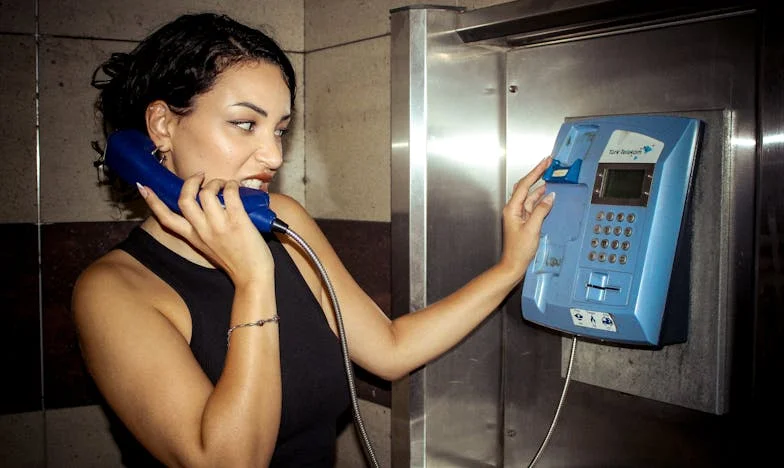The Daughter Who Never Was
“Emily, do you have to make a scene every time? People are staring. God, I wish you’d just—pull it together for once.”
His voice was cold, sharp as the metal spoon he tapped against his coffee mug. I watched the ripples in my untouched tea, my hands trembling just above the table. The bustling sounds of the Midtown Java House faded, replaced by a ringing in my ears. Around us, students with laptops and moms with toddlers glanced over, then back away, embarrassed for me or annoyed by the drama.
But I didn’t care. I was already past the point of shame.
“Why did you even come, Kriss?” My voice barely rose above a whisper, but my words landed hard. “You didn’t want to talk. You never do.”
He sighed, rubbing his temples like he was the one in pain. “You keep dragging us back, Em. It’s been six months. You have to let it go. I can’t keep doing this.”
A sob caught in my throat. I tried to swallow it back, but it was too big, too sharp. “I lost her. We lost her. Doesn’t that mean anything to you?”
He looked away, the muscles in his jaw tight. “We didn’t lose anything. We never had her. Not really.”
I stared at him, not recognizing the man I’d married seven years ago. The man who’d once kissed my forehead and whispered about painting a nursery yellow, because it was ‘sunshine, no matter what.’ The man who now recoiled at the very mention of the child we’d dreamed about.
When the doctor told me, I was lying on a hospital bed, fluorescent lights burning my eyes. “I’m sorry,” she said, her voice soft, practiced. “There’s no heartbeat.” My heart stopped then, too. Kriss stood beside me, stone-faced, gripping my hand so hard it hurt. I thought he was holding me together. But now I think he was just holding on to whatever piece of himself hadn’t shattered yet.
The days after were a blur: casseroles from neighbors, flowers from my sister Jenna, and endless, empty condolences. “Everything happens for a reason,” they said, or, “You can try again.” Like my daughter was a test I could retake. Like I could study harder and pass next time.
I stopped leaving the house. The nursery stayed locked. Kriss went back to work, throwing himself into twelve-hour days at the agency, coming home late and silent. The gap between us widened with every night we spent pretending to sleep, facing opposite walls.
Today I’d asked him to meet me here, hoping—what? That he’d finally talk to me? That we’d grieve together, heal together?
Instead, here we were. Two strangers, one table, and a canyon of loss between us.
He stood, shoving his chair back so abruptly it scraped across the tile. People looked again. “I can’t do this, Em. I have a meeting.” He dropped a crumpled five on the table and left.
I sat alone, tears running hot and silent down my cheeks.
“Are you okay, ma’am?” The waitress, a girl no older than twenty, asked gently.
I nodded, lying. “Just give me a minute.”
When I got home, Jenna was waiting on my porch, her arms full of groceries. She looked at me, saw right through my red eyes and forced smile. “He left you there, didn’t he?”
I nodded, and she hugged me. I wanted to collapse, but I couldn’t. Not in front of her. I was the older sister, the strong one, the one who’d always fixed things.
Over dinner, Jenna tried to make small talk—her new job, her apartment, Mom’s latest Facebook drama. But I couldn’t focus. I only saw the empty chair at the table, the high chair we’d never need.
“Em,” Jenna said gently, “You can’t keep doing this to yourself. Or to him.”
I clenched my fists. “He acts like she never existed.”
“He’s hurting, too. He just…doesn’t know how to show it.”
I shook my head. “No. He’s erasing her. Erasing me. I can’t—”
Jenna reached across, squeezing my hand. “You need help. Real help. Grief counseling. Maybe together.”
I wanted to snap at her, to say I was fine. But I wasn’t. I was drowning.
That night, in bed, Kriss finally spoke. His voice was hoarse, shaky. “I see her, too, Em. Sometimes, in my dreams. I see you holding her. And when I wake up, I feel so empty, I want to scream.”
I turned toward him, tears streaming. “Why can’t we talk about her?”
“Because if I do, it’s real. And I can’t face it.”
We lay in the dark, neither of us moving. I wanted to reach for him. I wanted him to reach for me. But we both lay still, paralyzed by fear, by pain.
The next morning, I called a counselor. For both of us. Kriss agreed, reluctantly. It wasn’t a miracle cure, but it was a start.
Weeks turned into months. Some days, we spoke about her—our daughter who never was. Some days, we didn’t. But slowly, we stopped being strangers. We shared memories, hopes, regrets. We fought, we cried, we forgave. We learned to live with the empty space at our table.
Sometimes, I still see her—in a yellow dress, laughing in the sunlight. I’ll always grieve, but I’m learning to breathe again. I’m learning that love doesn’t disappear with loss. It just changes shape.
Have you ever had to let go of someone you never really held? How do you mourn a future that never came to be?
